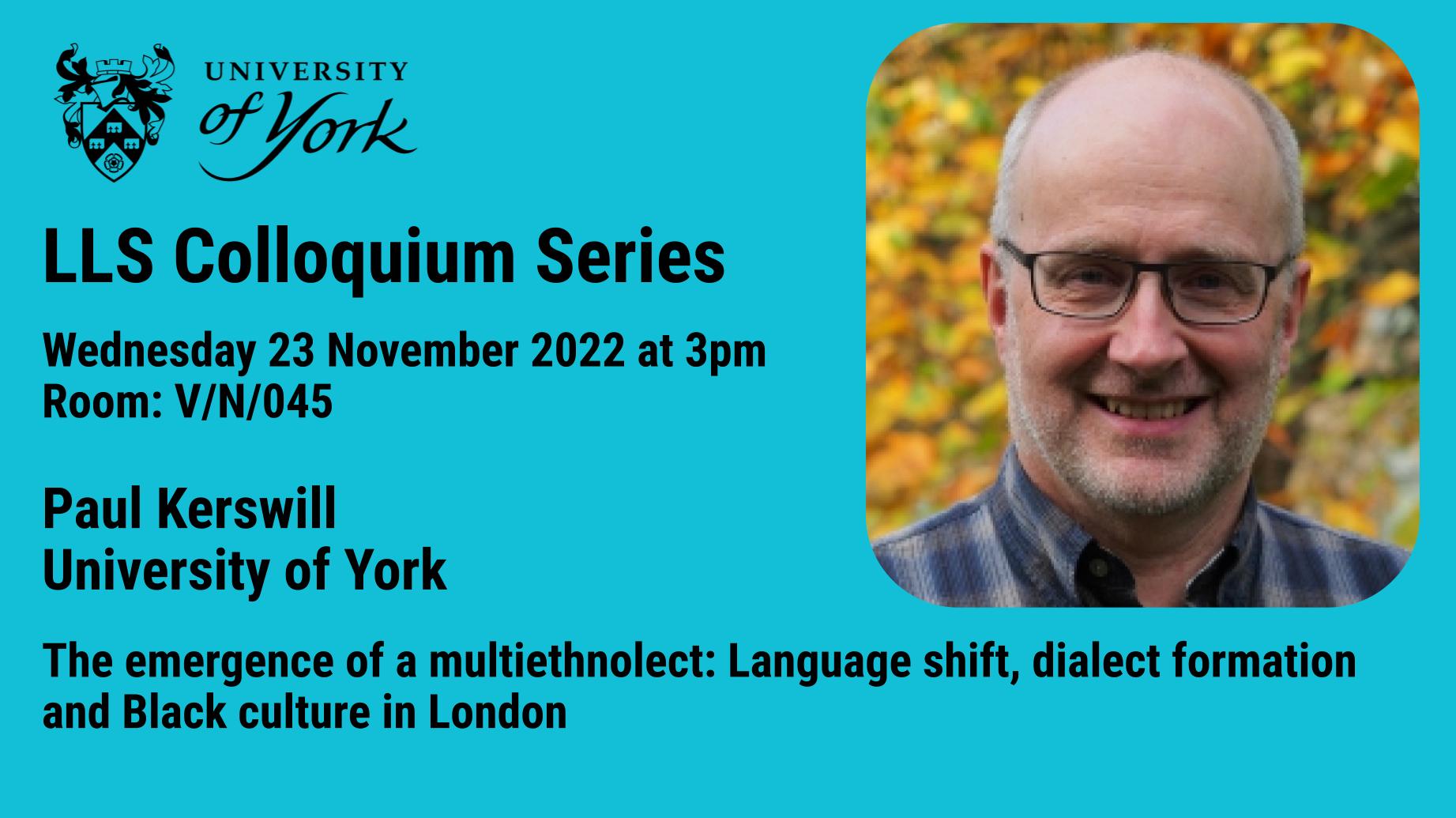LLS Colloquium: The emergence of a multiethnolect: Language shift, dialect formation and Black culture in London

Wednesday 23 November 2022, 3.00PM
Speaker(s): Paul Kerswill (University of York)
On Wednesday 23 November 2022, Paul Kerswill (University of York) will be presenting on "language shift, dialect formation and Black culture in London".
Talk: The emergence of a multiethnolect: Language shift, dialect formation and Black culture in London
In North-west European cities, new varieties of established languages have emerged in the past 40 years, following rapid migration. Arrivals from other countries acquire local languages with varying levels of fluency, while their children acquire something like ‘native’ proficiency. It is these (young) people’s speech that is in focus. To varying degrees, these speakers’ varieties differ structurally from the established varieties, and the obvious question arises as to the mechanisms behind these changes (Cheshire, Nortier & Adger 2015). A well-established term for these varieties is multiethnolect.
In London, the first large-scale migration after World War II was from the Caribbean, notably Jamaica: the question arises as to how much Caribbean creoles contributed to is now known as Multicultural London English (MLE). I take a broadly contact linguistics approach to this question, coupled with an evaluation of the relevance of demography, population history and culture (Kerswill & Torgersen 2021). I will consider the extent to which MLE shares features with creoles or koines, or both. In terms of demography, I see Trudgill’s (2004) deterministic theory of new-dialect formation as relevant, assuming as it does that relative population sizes, coupled with frequency and intensity of contact between speakers, predict the linguistic outcome of dialect contact. Useful in combination with Trudgill’s model is Mufwene’s earlier Founder Effect (Mufwene 1996), which argues that a founding population has a disproportionate influence on the developing dialect compared to later arrivals. I argue that, despite the fact that no single non-British ethnolinguistic group comes close to dominating in London, the fact that Jamaicans arrived first and ‘set the tone’ for youth language and culture enabled Jamaican Creole features, mostly lexical, to survive in contemporary youth language. It is no coincidence that many of these items are actively used in British hip-hop, grime, even though a high proportion of performers have West African, not Creole, language backgrounds. ‘Multicultural London English’ is now the default non-academic term to refer the language of Black culture both in its media manifestations (film, literature, music) and as it is used by underprivileged inner-city Black youth. This flies in the face of the term’s use in academia to refer to a genuinely multiethnic/multicultural repertoire, and as sociolinguists we have to accommodate both meanings (Ilbury & Kerswill fc 2023).
The talk will take place at 3pm V/N/045, followed by a drinks reception in the Deborah Hines room.
Event poster: LLS Colloquium: The emergence of a multiethnolect: Language shift, dialect formation and Black culture in London
Location: V/N/045
